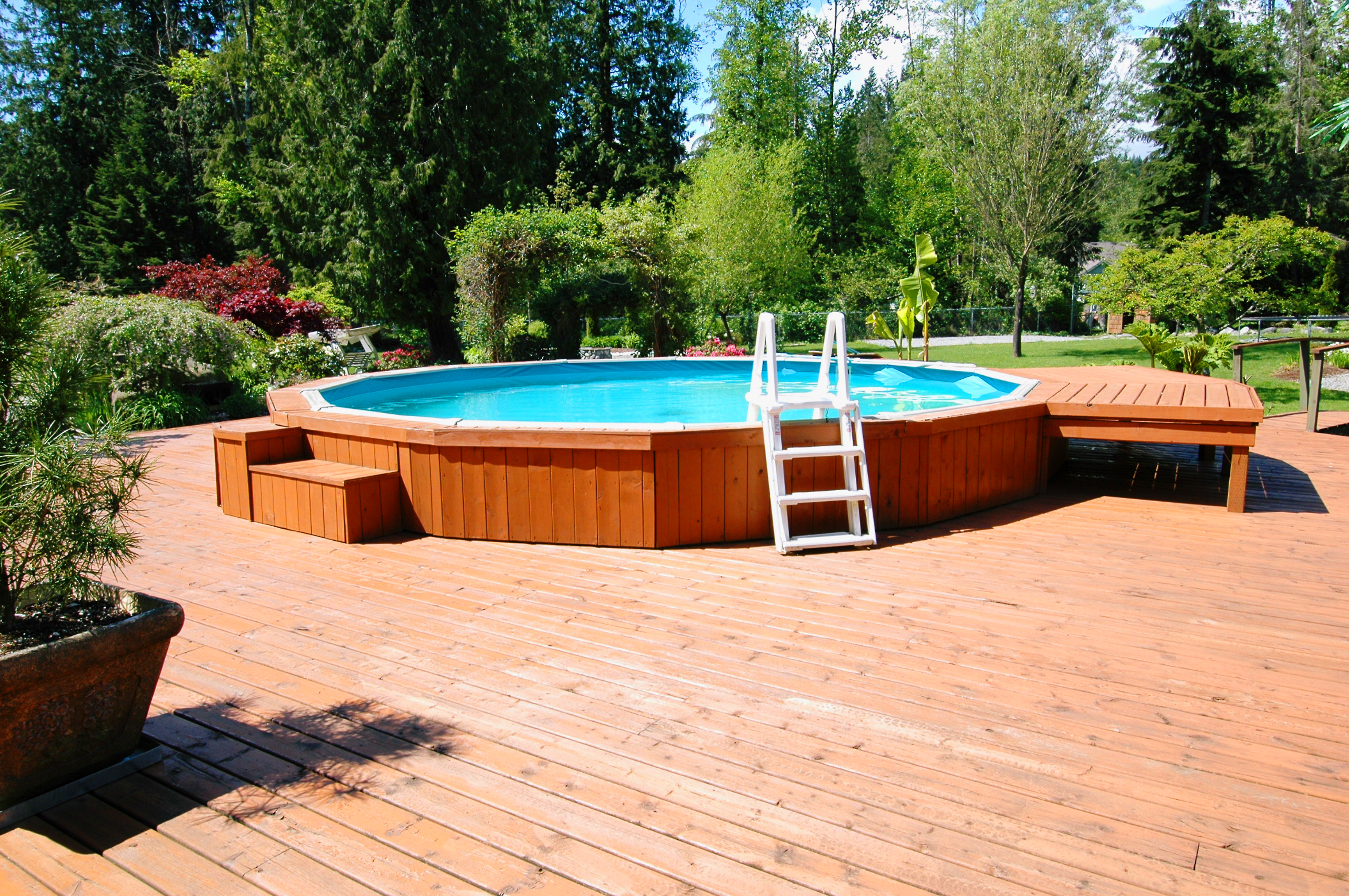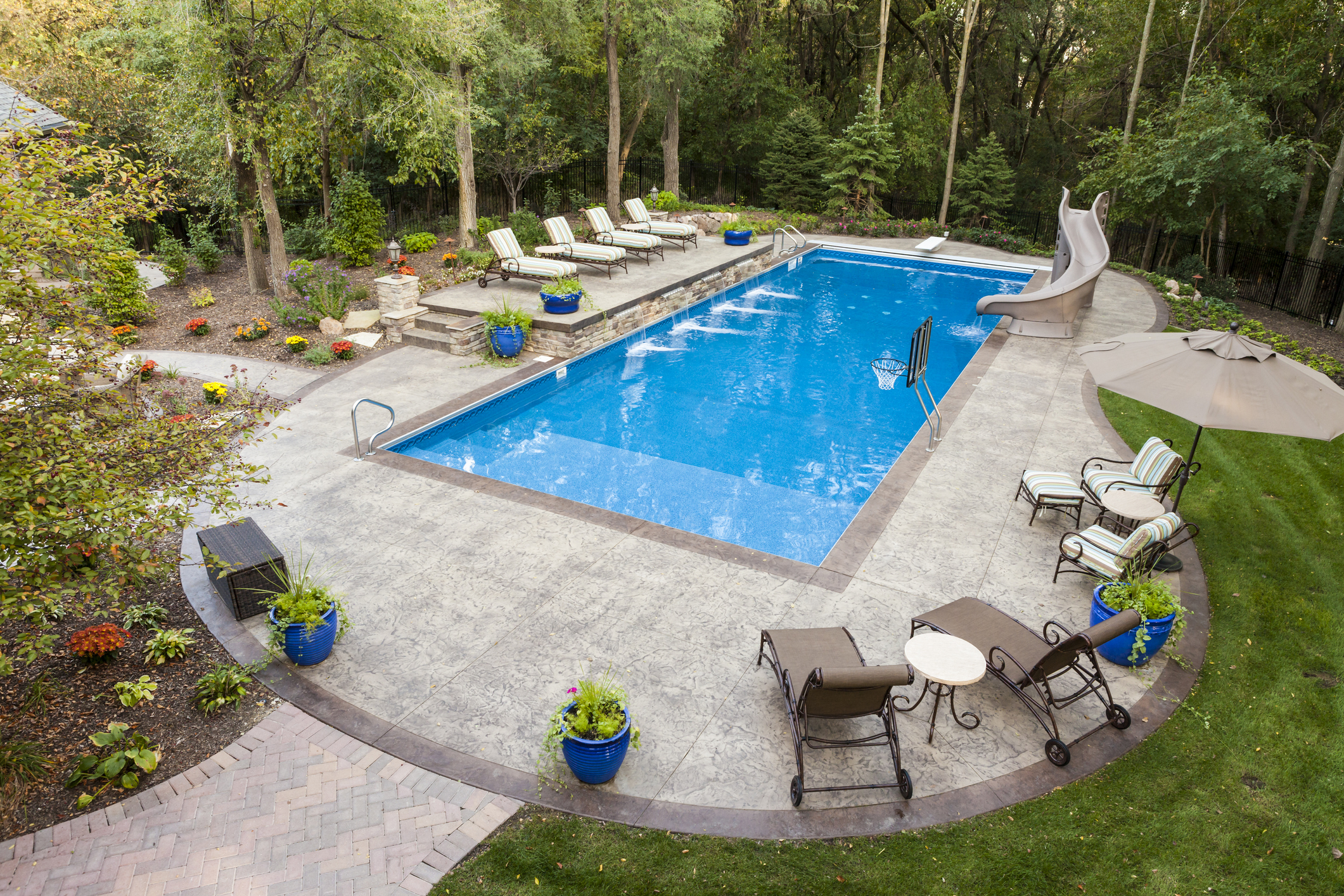In-Ground vs. Above-Ground Pools: Which Is the Best Investment?
A pool is an expensive home improvement project that will likely improve your quality of life, but it doesn’t necessarily add value to your home.


Profit and prosper with the best of Kiplinger's advice on investing, taxes, retirement, personal finance and much more. Delivered daily. Enter your email in the box and click Sign Me Up.
You are now subscribed
Your newsletter sign-up was successful
Want to add more newsletters?

Delivered daily
Kiplinger Today
Profit and prosper with the best of Kiplinger's advice on investing, taxes, retirement, personal finance and much more delivered daily. Smart money moves start here.

Sent five days a week
Kiplinger A Step Ahead
Get practical help to make better financial decisions in your everyday life, from spending to savings on top deals.

Delivered daily
Kiplinger Closing Bell
Get today's biggest financial and investing headlines delivered to your inbox every day the U.S. stock market is open.

Sent twice a week
Kiplinger Adviser Intel
Financial pros across the country share best practices and fresh tactics to preserve and grow your wealth.

Delivered weekly
Kiplinger Tax Tips
Trim your federal and state tax bills with practical tax-planning and tax-cutting strategies.

Sent twice a week
Kiplinger Retirement Tips
Your twice-a-week guide to planning and enjoying a financially secure and richly rewarding retirement

Sent bimonthly.
Kiplinger Adviser Angle
Insights for advisers, wealth managers and other financial professionals.

Sent twice a week
Kiplinger Investing Weekly
Your twice-a-week roundup of promising stocks, funds, companies and industries you should consider, ones you should avoid, and why.

Sent weekly for six weeks
Kiplinger Invest for Retirement
Your step-by-step six-part series on how to invest for retirement, from devising a successful strategy to exactly which investments to choose.
Figuring out if an above-ground vs. an in-ground pool is the best fit for your yard, budget and lifestyle can be a complicated decision. They differ significantly in a many ways, from upfront cost, maintenance, ability to customize to overall lifespan.
How much it adds depends on several factors, including the type and style of the pool and whether pools are a must-have feature where you live.
Only you can determine the true return on investment. A pool can add value to your quality of life and enhance the enjoyment of your home. The "Remodeling Impact Report for 2023" from The National Association of Realtors (NAR) showed a joy score, the level of homeowner satisfaction with an improvement, was 10 out of 10.
From just $107.88 $24.99 for Kiplinger Personal Finance
Become a smarter, better informed investor. Subscribe from just $107.88 $24.99, plus get up to 4 Special Issues

Sign up for Kiplinger’s Free Newsletters
Profit and prosper with the best of expert advice on investing, taxes, retirement, personal finance and more - straight to your e-mail.
Profit and prosper with the best of expert advice - straight to your e-mail.
In-ground vs above-ground pools: basic differences
- Excavation and installation: In-ground pools go into the ground, so they require site prep and excavation. Above-ground pools sit on top of the ground, on a concrete slab or a deck. While they typically don’t require excavation, you’ll likely need to level the ground.
- Permanence: In-ground pools are a permanent addition to your property, while above-ground pools are a temporary option. Above-ground pools are more easily and cheaply removed from your property than in-ground pools.
- Ability to customize: Above-ground pools are pre-fabricated in a limited number of shapes and sizes, but the options for customizing an in-ground pool are nearly limitless.

Above-ground pools
An above-ground pool is the least expensive option for a swimming pool. They’re a good choice for yards that are small or have unsuitable conditions for in-ground pools. Their big advantage, in addition to price, is that they take just a few days to a few weeks install, they can arrive in a kit form and are installed by professionals. These semi-permanent pools are installed directly on the ground, on a deck, or on a concrete slab.
An above-ground pool costs $1,600 to $7,500 with installation, depending on the size, shape, and material, according to homeguide.com. For the pool itself, prices typically range from $800 to $4,500 and $800 to $3,000 on average for labor according to homeguide.com data.

In-ground pools
A permanently installed in-ground pool can add value to your home, particularly if you live in a climate that is warm most of the year. There are countless ideas for the shape of your pool, the materials for the liner or walls, the decking or paving materials to surround it, and the upgrades you can add on like waterfalls, slides and diving boards.
The cost of installing an in-ground pool can vary greatly with size, location and materials used. The national average hovers around $65,000. You can expect to pay anywhere from $80 to $250 a square foot (with installation) or $25,000 to $100,000 total according to homeguide.com data. Fiberglass and vinyl swimming pools are the cheapest options but don't last as long as concrete pools.
There is also a significant cost to removing an in-ground pool. The same factors that contribute to the price of building a pool add to the removal costs. The size, material and accessibility, can all cause your total cost to be higher than the national average of $6,000, according to Angi.com data. Heavy machinery is required to demolish the pool and engineering expertise is needed to make the land safe and buildable after removal.
Above-ground vs. in-ground pools: how they compare
| Header Cell - Column 0 | In-ground | Above-ground | Winner |
|---|---|---|---|
Up-front cost | An in-ground pool costs $25,000 to $100,000 | An above-ground pool costs $1,600 to $7,500 | Above-ground pools |
Installation | An inground pool, however, can take weeks. These pools require heavy machinery to dig out the site | Installing an above ground pool is much easier and quicker than installing an inground pool | Above-ground pools |
Pool cleaning fees | If you hire a professional pool service to do the work for you, that cost is between $80 and $150 per month$80 to $150 for a weekly or bi-weekly cleaning service. | You can expect to pay $5 to $15 for the necessary chemicals. If you hire a professional pool service to do the work for you, that cost is between $80 and $150 per month | Above-ground pools |
Customization | In-ground pools offer the most variety and customization. | Above- ground pools can be customized with decks and wraparound siding | In-ground pools |
Long term investment | A well-maintained in-ground pool can last 20 to 50 years- depending on the type | An above ground pool typically lasts 10 to 15 years | In-ground pools |
Added value | An inground swimming pool provides a 15% to 25% ROI and increases the value of a home by 5% to 7% | $0 Above-ground pools are generally considered temporary structures and likely will not be included in an appraisal | In-ground pools |
Removal | $5,000-$15,000 | $475- $5,000 | Above-ground pools |
The main disadvantage of an above-ground pool is that it generally adds no value to your home. They also have some of the same problems as in-ground pools, such as water evaporation and maintenance issues. They typically come in either 48 inches deep or 52 inches deep so they are not suitable or safe for diving.
The main drawback of an in-ground pool is the price tag. Costs can easily climb to $ 90,000 or higher, and it will likely raise your property taxes. And only 1% of real estate agents would recommend adding a pool before selling according to NAR.
There are also the additional yearly maintenance expenses not associated with above-ground pools. It costs $300 to $650 to open and close the pool each year. (These costs are often included in comprehensive weekly service contracts.)
Does an in-ground swimming pool add value to your home?
Adding an in-ground pool can boost your home’s worth by around 7 percent, according to Bankrate.com. Above-ground pools are considered temporary and are not typically included in a home appraisal and therefore add no value to the appraised value.
The Remodeling Impact Report from NAR estimates that adding an inground pool offers an return on investment (ROI) of around 56%. The average cost to install a swimming pool is around $90,000, and the project increases the value of a home by roughly $50,000.
Here are three factors that can help you determine if a swimming pool will add positive value to your home:
- If you live in a neighborhood where many of your neighbors have swimming pools. In those circumstances not having a pool might decrease your home’s marketability.
- In warm climates, such as Arizona or Florida, a pool can be an attractive feature for potential buyers.
- Not everyone wants a the risks or costs associated with a pool. Couples with very young children may shy away from pools because of safety issues. And you may need to add or modify the fencing around your yard to comply with pool safety regulations in your state or community.
Bottom line
While some pools add more value than others, adding a swimming pool should be based on personal enjoyment rather than a means of driving up your home’s price. Even a pool that checks all the “smart investment” boxes would still only bring a maximum 7% increase in value according to houselogic.com.
If you give a pool a "joy score" of 10 out of 10, it will pay for itself in one summer.
Related Content
Profit and prosper with the best of Kiplinger's advice on investing, taxes, retirement, personal finance and much more. Delivered daily. Enter your email in the box and click Sign Me Up.

Donna joined Kiplinger as a personal finance writer in 2023. She spent more than a decade as the contributing editor of J.K.Lasser's Your Income Tax Guide and edited state specific legal treatises at ALM Media. She has shared her expertise as a guest on Bloomberg, CNN, Fox, NPR, CNBC and many other media outlets around the nation. She is a graduate of Brooklyn Law School and the University at Buffalo.
-
 Betting on Super Bowl 2026? New IRS Tax Changes Could Cost You
Betting on Super Bowl 2026? New IRS Tax Changes Could Cost YouTaxable Income When Super Bowl LX hype fades, some fans may be surprised to learn that sports betting tax rules have shifted.
-
 How Much It Costs to Host a Super Bowl Party in 2026
How Much It Costs to Host a Super Bowl Party in 2026Hosting a Super Bowl party in 2026 could cost you. Here's a breakdown of food, drink and entertainment costs — plus ways to save.
-
 3 Reasons to Use a 5-Year CD As You Approach Retirement
3 Reasons to Use a 5-Year CD As You Approach RetirementA five-year CD can help you reach other milestones as you approach retirement.
-
 How Much It Costs to Host a Super Bowl Party in 2026
How Much It Costs to Host a Super Bowl Party in 2026Hosting a Super Bowl party in 2026 could cost you. Here's a breakdown of food, drink and entertainment costs — plus ways to save.
-
 3 Reasons to Use a 5-Year CD As You Approach Retirement
3 Reasons to Use a 5-Year CD As You Approach RetirementA five-year CD can help you reach other milestones as you approach retirement.
-
 How to Watch the 2026 Winter Olympics Without Overpaying
How to Watch the 2026 Winter Olympics Without OverpayingHere’s how to stream the 2026 Winter Olympics live, including low-cost viewing options, Peacock access and ways to catch your favorite athletes and events from anywhere.
-
 Here’s How to Stream the Super Bowl for Less
Here’s How to Stream the Super Bowl for LessWe'll show you the least expensive ways to stream football's biggest event.
-
 The Cost of Leaving Your Money in a Low-Rate Account
The Cost of Leaving Your Money in a Low-Rate AccountWhy parking your cash in low-yield accounts could be costing you, and smarter alternatives that preserve liquidity while boosting returns.
-
 This Is How You Can Land a Job You'll Love
This Is How You Can Land a Job You'll Love"Work How You Are Wired" leads job seekers on a journey of self-discovery that could help them snag the job of their dreams.
-
 We Inherited $250K: I Want a Second Home, but My Wife Wants to Save for Our Kids' College.
We Inherited $250K: I Want a Second Home, but My Wife Wants to Save for Our Kids' College.He wants a vacation home, but she wants a 529 plan for the kids. Who's right? The experts weigh in.
-
 4 Psychological Tricks to Save More in 2026
4 Psychological Tricks to Save More in 2026Psychology and money are linked. Learn how you can use this to help you save more throughout 2026.